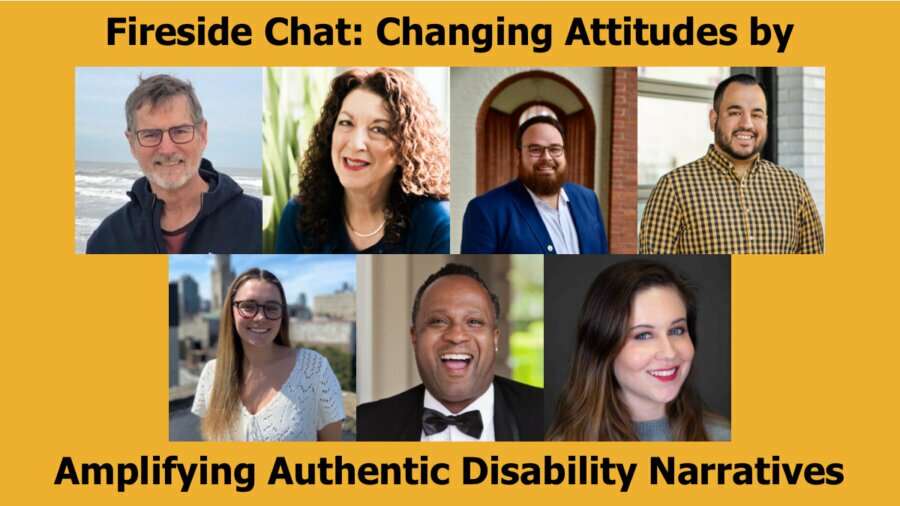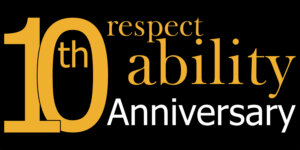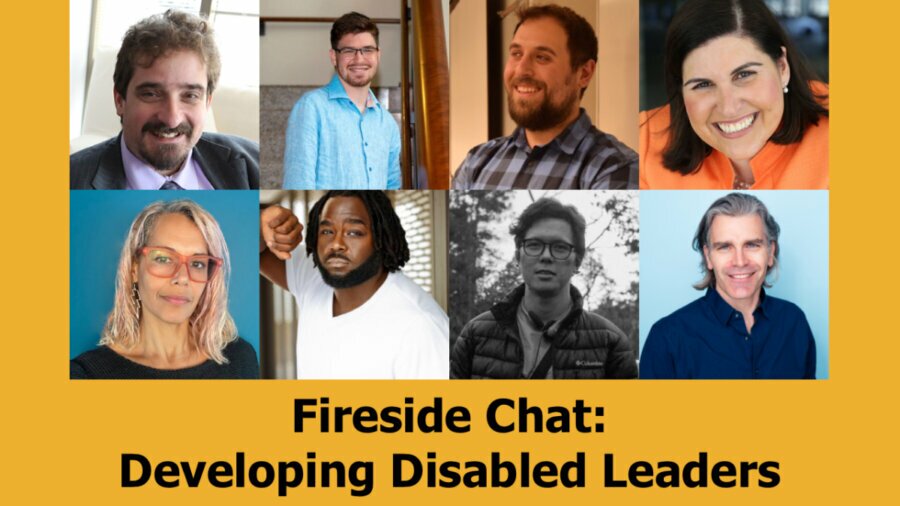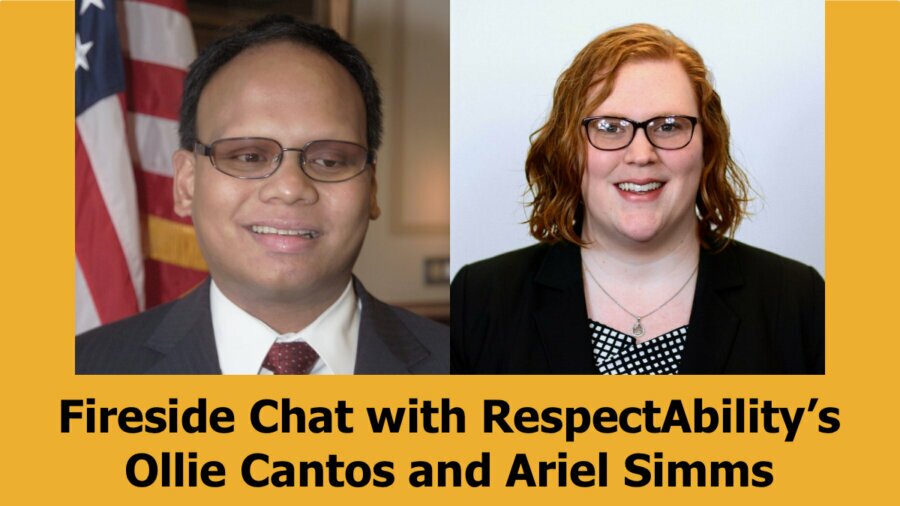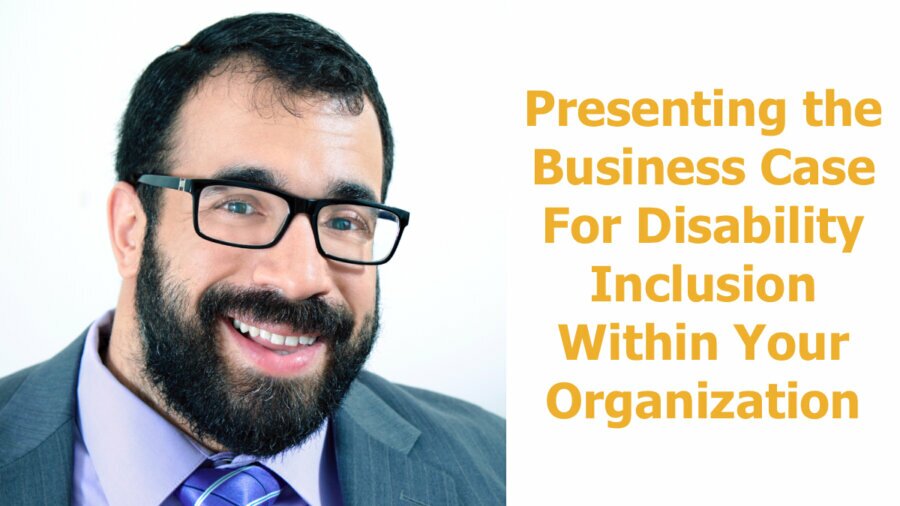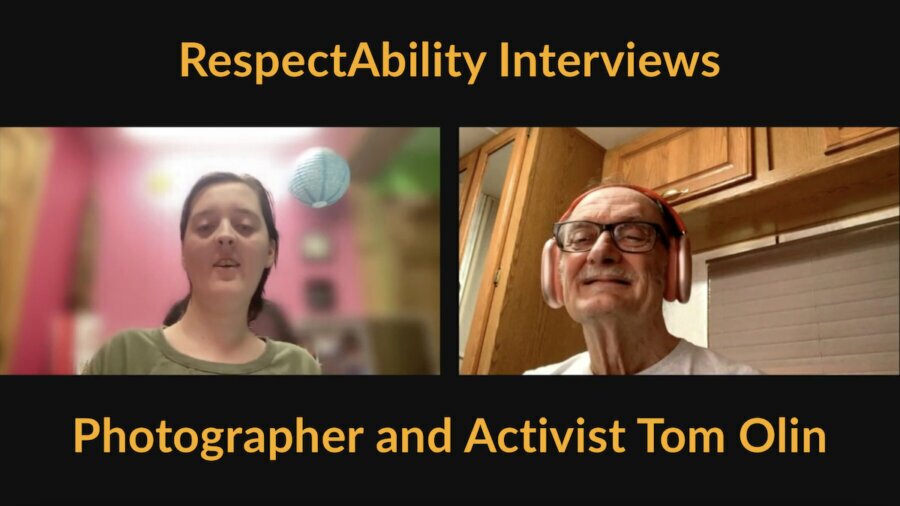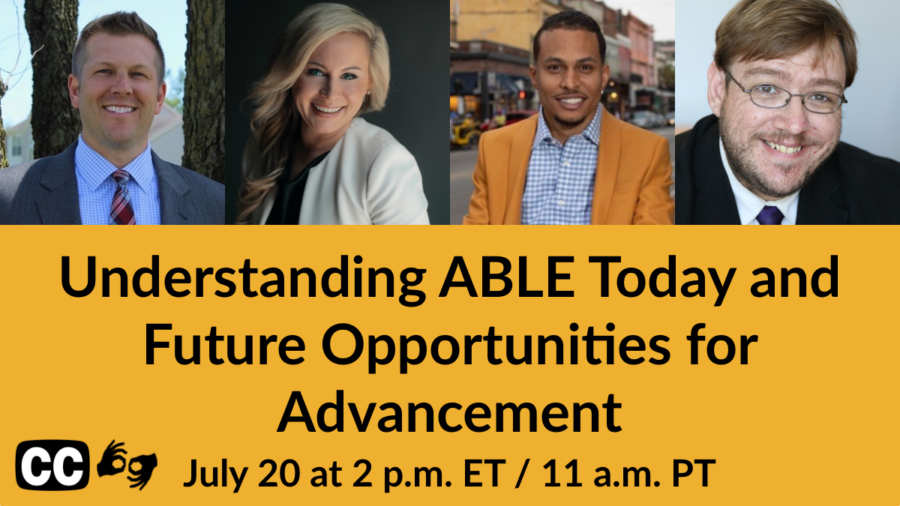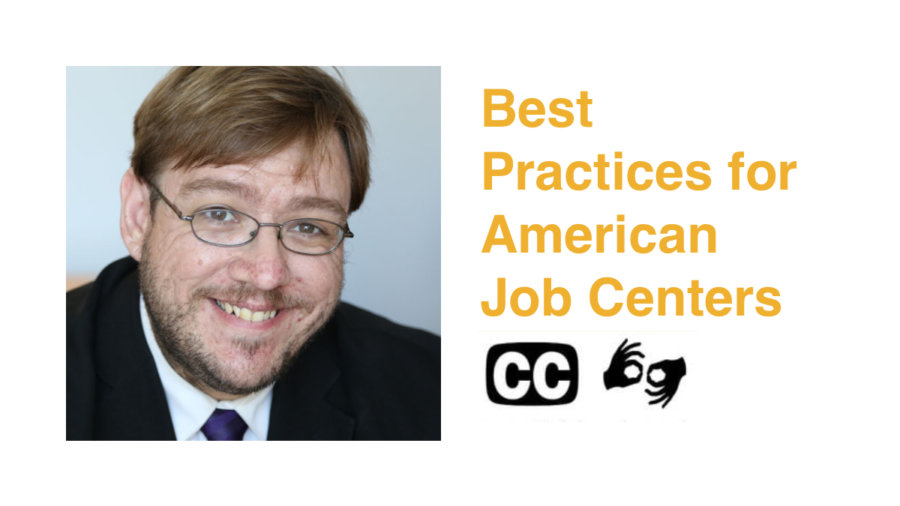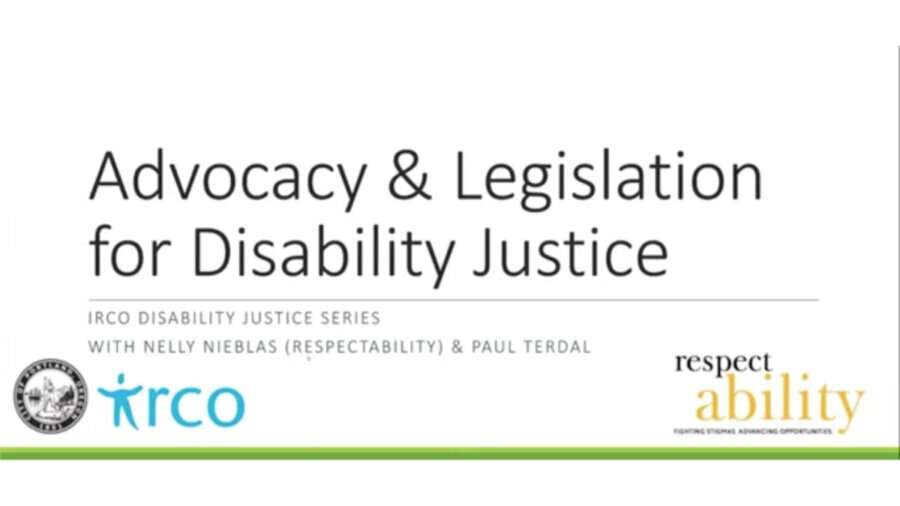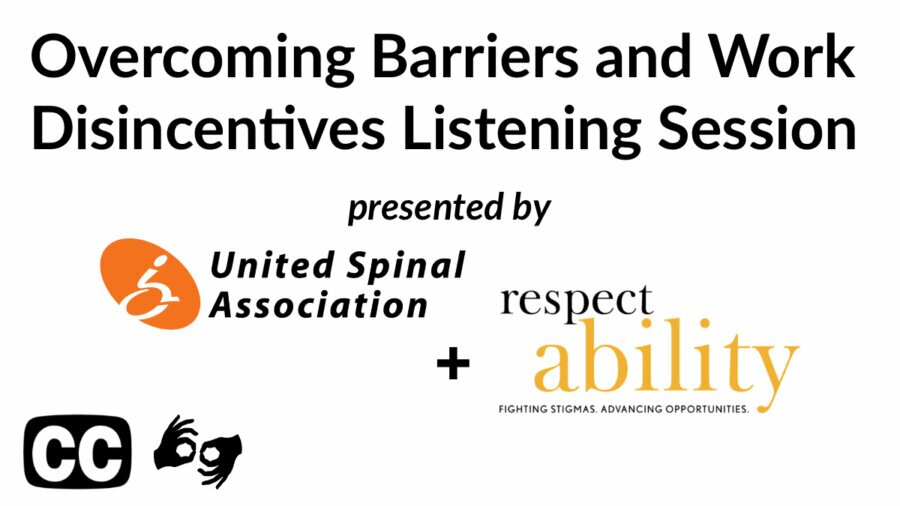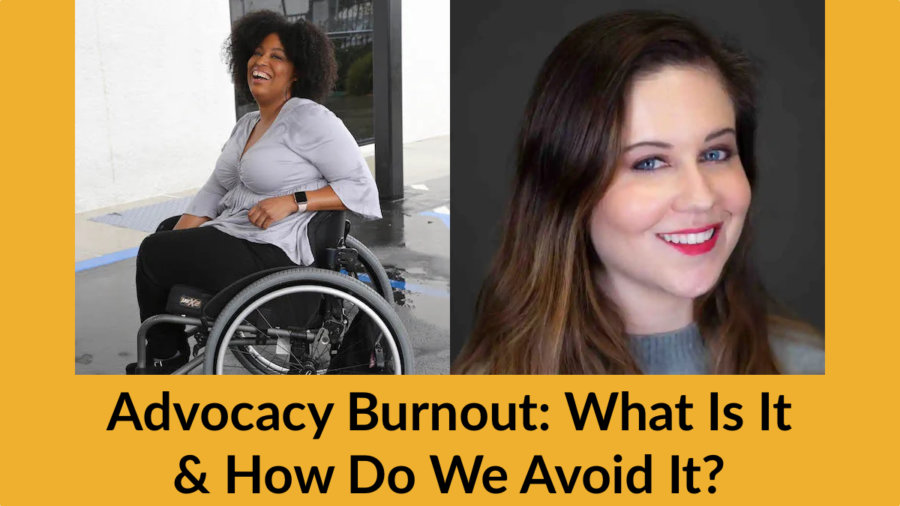Changing attitudes means that we challenge stigma and amplify authentic narratives on disability. We’re proud to be a “nothing about us, without us” organization, led by those with a diversity of disabilities and other intersectional identities. Disabled people are the best experts on their lived experience, and we work to promote this reality across our pillars. Watch this webinar to hear from members of our Board and Staff about our work in this area, and our vision for the coming years.
Advocacy Webinars
Fireside Chat: Developing Disabled Leaders
Developing leaders means that we model the practice of training and empowering the next generation of leaders in disability advocacy across our pillars. This includes investing in our staff through professional development and building new pathways for employee recognition and advancement. We also created new policies to shape a workplace environment that centers equity and inclusion. In 2022, RespectAbility trained 34 Apprentices and ran three Labs for 52 disabled entertainment professionals. More than 400 people have graduated from one of our pipeline programs since 2013.
Watch the recording to learn from members of our Staff, and alumni of our pipeline programs, about our work in this area, and our vision for the coming years. [continue reading…]
Fireside Chat with RespectAbility’s Ollie Cantos and Ariel Simms
Hear directly from RespectAbility’s President and CEO Ariel Simms and Chairman of the Board of Directors Ollie Cantos, as they celebrate the achievements of RespectAbility’s first decade as an organization, including achievements in developing leaders, changing policy, ensuring authentic representation, and creating more accessible and inclusive communities. They discussed their vision for RespectAbility’s next 10 years and the organization’s renewed efforts in diversity, equity, inclusion, and accessibility (DEIA).
Learn more about RespectAbility’s 10th Anniversary virtual event series.
Read RespectAbility’s 2022 Annual Report.
Presenting the Business Case For Disability Inclusion Within Your Organization
Read transcript
Download PowerPoint
The passionate advocates of the disability community have long come together to advocate for inclusion in our places of work. Our focus often has been on legal rights, or the inherent justice of our cause. But lately, the business community has come to recognize the economic value of disability inclusion. This webinar equipped internal advocates to make the business case at their place of work, becoming champions of disability inclusion while raising profits and revenue. [continue reading…]
RespectAbility Interviews Photographer and Activist Tom Olin
To conclude our Disability History series, RespectAbility Apprentice Emily Tironi sat down for an interview with Tom Olin, the photographer who took many of the images used in the series. They had a conversation about the history of the disability rights movement and what Tom thinks other activists should focus on going forward.
Financial Security for New Workers with Disabilities: Understanding ABLE Today and Future Opportunities for Advancement
Read transcript
Download PowerPoint
Target Audience: individuals with disabilities and their family members, benefits navigators, direct service providers, provider agencies, self-advocates, advocacy agency staff, workforce development board members, and state agencies leaders
From Compliance to Programmatic Accessibility: Best Practices for American Job Centers
Read transcript
Download PowerPoint
In the 8 years since the Workforce Innovation and Opportunity Act (WIOA) was passed into law, the American economy has profoundly changed. Major structural changes among industries, companies, and contractors have accelerated thanks to the COVID-19 pandemic and new economic policies from the Biden Administration. Throughout these tumultuous years, American Job Centers (AJCs) / America’s Job Centers of California (AJCCs) have been crucial for the delivery of workforce services to thousands of workers. As the labor force participation rate for workers with disabilities rapidly increases to historical highs, jobseekers with disabilities need supports and services that will meet their needs and help them earn an income. However, the working professionals at AJCs/AJCCs may not have received any formal training on disability etiquette, accessibility, assistive technology, or best practices.
This webinar offered a high-level overview of proven practices and lessons learned for serving jobseekers with disabilities through the workforce development system. Attendees learned from a subject matter expert who has collected simple, practical, and cost-effective solutions to help advance opportunities for jobseekers with disabilities. [continue reading…]
IRCO + RespectAbility’s Nelly Nieblas: Advocacy & Legislation for Disability Justice
Two organizers, one local and one national, share their experiences with coalition building and advocacy for disability justice.
Overcoming Barriers and Work Disincentives Listening Session
Presented by United Spinal and RespectAbility
Read transcript
Download PowerPoint
More than 80 million people living in America depend on Medicaid or the Children’s Health Insurance Program (CHIP) for essential services. Looking at the challenge facing these Americans, leaders at the Centers for Medicare & Medicaid Services (CMS) have recently released a Request for Information (RFI) to the public. This RFI is a tremendous opportunity for people with disabilities to directly weigh in and share their lived experiences accessing care or overcoming barriers to work.
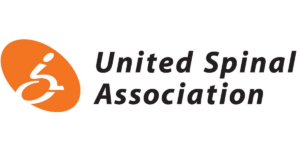 RespectAbility and United Spinal, two national disability organizations, joined forces to host a special listening session to solicit feedback, input, and ideas from the people most directly impacted by the work disincentives in Medicaid. Led by a panel of subject matter experts and self-advocates, this session guided the development and submission of public comments to CMS to help Medicaid better serve the disability community and improve opportunities for employment and success. [continue reading…]
RespectAbility and United Spinal, two national disability organizations, joined forces to host a special listening session to solicit feedback, input, and ideas from the people most directly impacted by the work disincentives in Medicaid. Led by a panel of subject matter experts and self-advocates, this session guided the development and submission of public comments to CMS to help Medicaid better serve the disability community and improve opportunities for employment and success. [continue reading…]
Advocacy Burnout: What Is It & How Do We Avoid It?
A Conversation with Disabled Creatives and Advocates, Tatiana Lee and Lesley Hennen
Navigating the Entertainment industry can be a daunting and overwhelming experience for anyone. And when you’re a person with multiple underrepresented identities, disability included, the feeling of burnout can become real very quickly. This event was a conversation between RespectAbility Entertainment & News Media team members, Tatiana Lee & Lesley Hennen. They shared their experiences and tips for navigating advocacy as disabled creatives, and how to handle the inevitable burnout that comes with it. [continue reading…]


